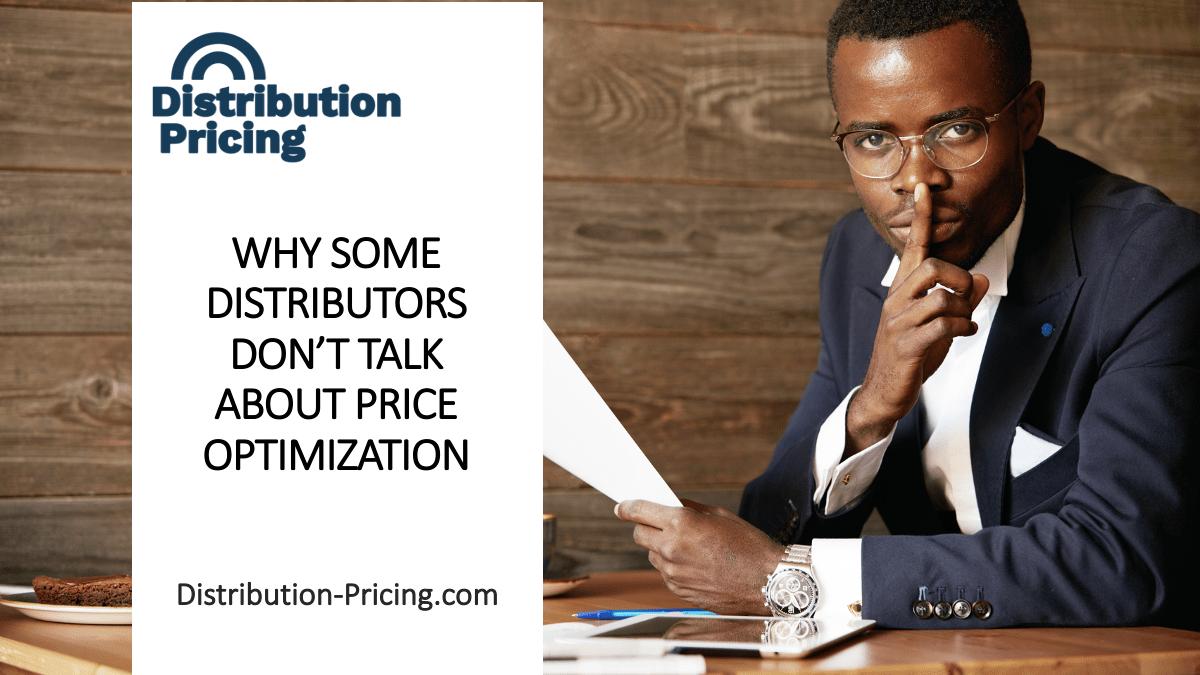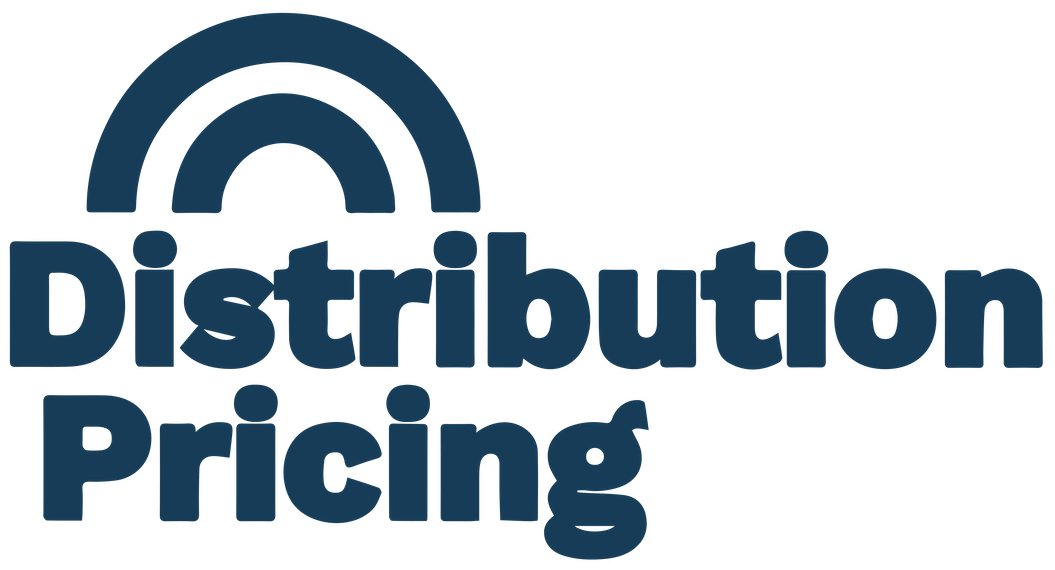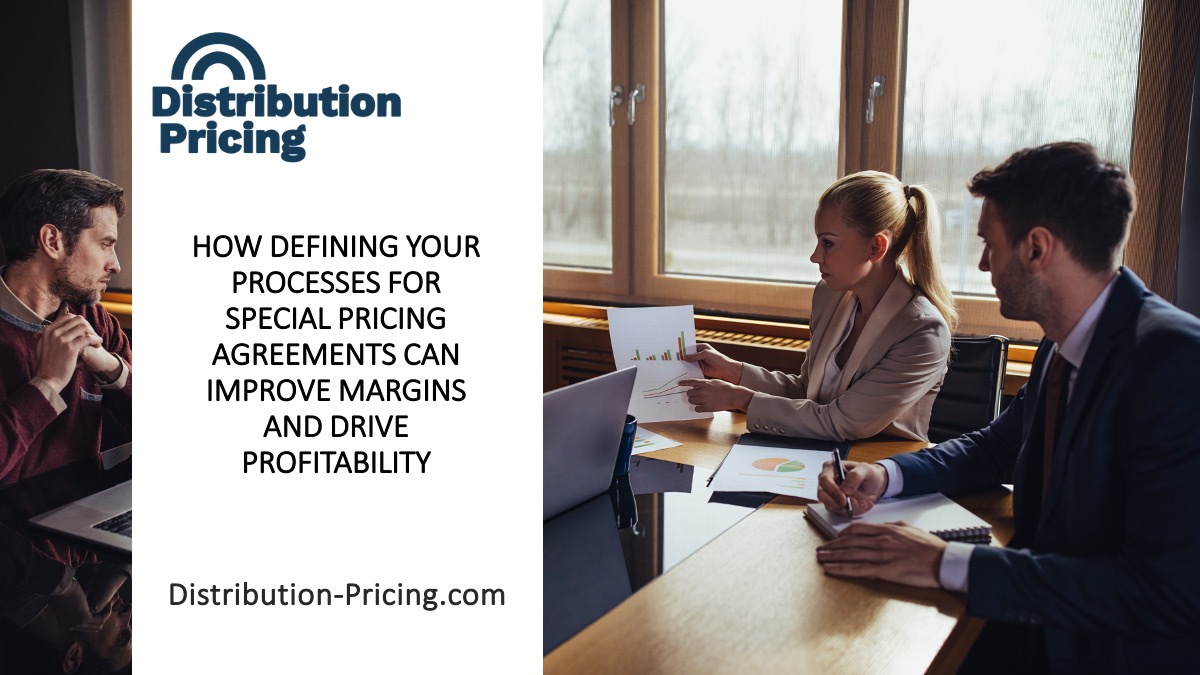Your passion for distribution pricing is what fuels our mission to deliver the most valuable and actionable insights to your inbox.

Why Some Distributors Don’t Talk About Price Optimization
I’ve made many friends with executives and founders of price optimization software and consulting businesses and one of the most common jokes we share is, “the first rule of price optimization is don’t talk about price optimization.” This may surprise regular readers of the Distribution Pricing Journal who know that setting the right prices can make an enormous impact on your profitability and competitive advantage. Unfortunately, many distributors are reluctant to discuss their price optimization techniques, tools and strategies. Their caution stems from several misconceptions about how people will respond to their use of price optimization solutions.
Fear of Customer Backlash
One reason distributors are reluctant to talk about price optimization is fear of customer backlash. Price optimization is terrific from the distributor’s point of view because it allows them to fine-tune their pricing based on a range of variables, such as customer segmentation, market demand, competitor pricing, and supply chain costs. It’s obvious why leading distributors are using price optimization to stay competitive and maximize their profits. Yet their customers are understandably not as enthusiastic about optimized pricing.
Customers can feel that optimized pricing is taking away their own profitability and reducing their ability to negotiate a good deal. This is especially true during times of inflation when prices seem to be rising everywhere and no one is sure what is real and what is opportunism. So, distributors often keep quiet about their price optimization strategies for fear that customer perceptions will lead to negative feedback or even a loss of trust in the company.
It’s worth noting here that price optimization isn’t necessarily about getting the highest possible price. It’s about matching the value you provide to market demand through any number of models and strategies. Distributors who use price optimization might very well have some of the lowest prices in the market because their analysis inspired a decision to grab more market share, maximize rebates or offer discounts to loyal customers.
Tipping the Hand to a Competitor
Part of price optimization involves competitive intelligence and an analysis of what your competitors are planning with their pricing. But almost all your pricing strategy involves things you don’t want to share with a competitor at all like demand patterns, purchasing frequency, inventory levels and more.
Distributors are often worried that if a competitor is aware of their price optimization initiatives, they can lose their competitive edge or expose information they don’t want to share with a competitor. They are concerned that a competitor might be able to reverse engineer their pricing decisions to pick out weak spots in their strategy or go head-to-head with pricing strategies.
When it comes to competitors who are far behind the technology adoption curve, it is hard to predict how they will respond. These competitors haven’t invested in price optimization solutions or even basic business intelligence, so their reactions may be impulsive. If such competitors learn that a distributor is using price optimization, they may feel pressured to lower their prices in response and try to start a price war. Don’t fall into that trap. Let them run their pricing data-free, you should stay the course and continue to optimize your pricing with your pricing solution.
Editor's Note: If you’re interested in learning more about how distributors can react to competitive pricing, please read: Tips for Understanding Your Competitors’ Prices and Staying Ahead of Your Competition. In that article, we asked Daniel Cakora, Business Consultant at Vendavo, a global market leader in B2B price management and commercial excellence solutions, to provide some of his insights on competitive pricing scenarios.
Fear of Outside Scrutiny
Distributors are typically very private in their operations. They don’t like any kind of spotlight on their business especially if it involves any kind of potentially negative outside scrutiny. This could come from media or association sources, customer groups, vendors or regulators. Some distributors are concerned that revealing their pricing strategies will attract undue attention.
In today’s digital age, information travels fast through social media channels, networking and association platforms and forums. One complaint about price optimization can hamper a distributor’s ability to grow business in a particular area. If a customer group or association starts complaining that price optimization is affecting their buying experience, it can be difficult to combat negative online momentum.
Distributors should not be concerned about regulatory scrutiny when it comes to price optimization. Leading price optimization solutions are widely adopted, and their advanced algorithms ensure that they are not creating unfair practices, discrimination, or monopolistic behavior. Price optimization software is designed to help companies set prices that reflect market conditions, demand, and competition. It uses sophisticated data analysis to determine the optimal price for a product or service. Unlike price-fixing, which involves collusion between competitors to artificially inflate prices, price optimization is a legitimate pricing strategy that can benefit both companies and consumers.
While there is absolutely nothing unethical or illegal about using price optimization, some distributors are worried about incorrect assumptions made by groups they deal with. Customers and partners may perceive the use of pricing optimization tools as unethical and violating fair competition practices, even though nothing could be further from the truth. Paradoxically, one of the primary reasons for this concern is the lack of transparency surrounding the use of these tools. Customers and associations may not fully understand how price optimization works and may believe that it is used to take advantage of them.
Fear of Employee Backlash
This may or may not surprise you, but some distributors don’t share their pricing information with all their employees. This is especially true if their sales organization is not tightly managed. We’ve heard of many distributors have different cost and price levels that are shared with sales team to keep them from discounting too much or keep them in line with compensation levels and quotas.
Some sales reps are concerned that price optimization tools don’t reflect their customer’s needs or may feel like part of their input is being devalued. They may believe that price optimization will disrupt their sales because they fear that setting more accurate and optimized prices may make their products less competitive or less appealing to customers who are used to paying lower prices. This is a misconception. Price optimization benefits sales reps by improving customer satisfaction and loyalty by offering fair and consistent pricing.
By using price optimization software, distributors can ensure that their prices are always within an acceptable range for consumers, helping to prevent customers from feeling like they are being overcharged or undersold. This is one less thing for a sales rep to worry about and customers know they can trust them for fair pricing.
The Solution: Transparency and Consistency
We believe the solution to these concerns is not to keep your price optimization a secret, but to overcommunicate with your customers, employees and partners. Be transparent. Communicate regularly.
Honesty and transparency are appreciated by customers and employees alike. It is important to be upfront about the reasons behind them. That can mean explaining your pricing strategy along with other factors such as changes in the economy, a price update from a vendor, a supply chain interruption or even a pricing error.
Will some customers complain when their prices increase? Of course, they will. But by explaining your price optimization strategy with them you can emphasize that you are offering fair and accurate pricing that is best for them while keeping your business healthy. You deserve to make money, too, it’s why you are in business, and they should want you to run a profitable business so they can count on your supply down the line.
What if a competitor tries to match your pricing or undercut you? Stay the course. While competitive price cuts could mean that you need to reconsider the value you offer, more than likely your competitor is not making a decision that should impact your business. Who knows what their cost levels or loss-leader strategies might be? The information that is available to them may not always be complete or up to date. Inaccurate data can lead to poor decision making, leaving a competitor at a disadvantage in the market compared to distributors who are using more advanced analytics.



